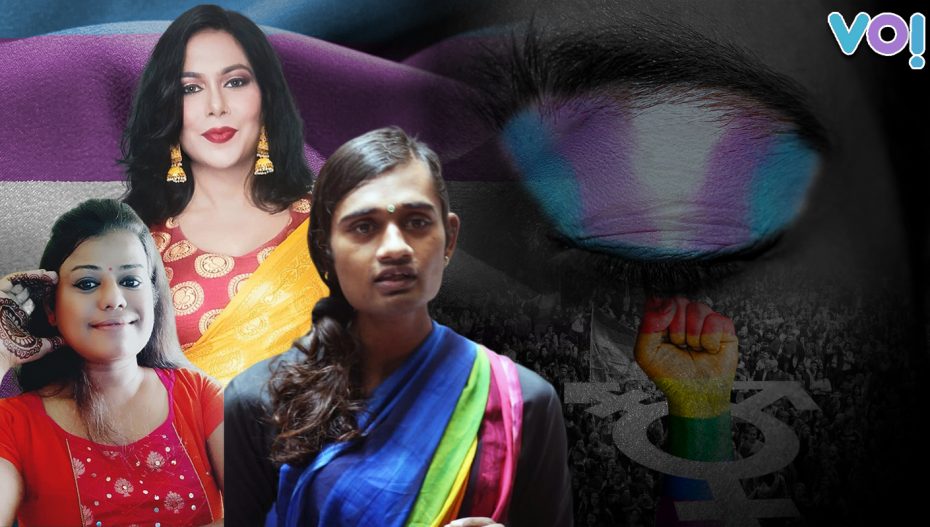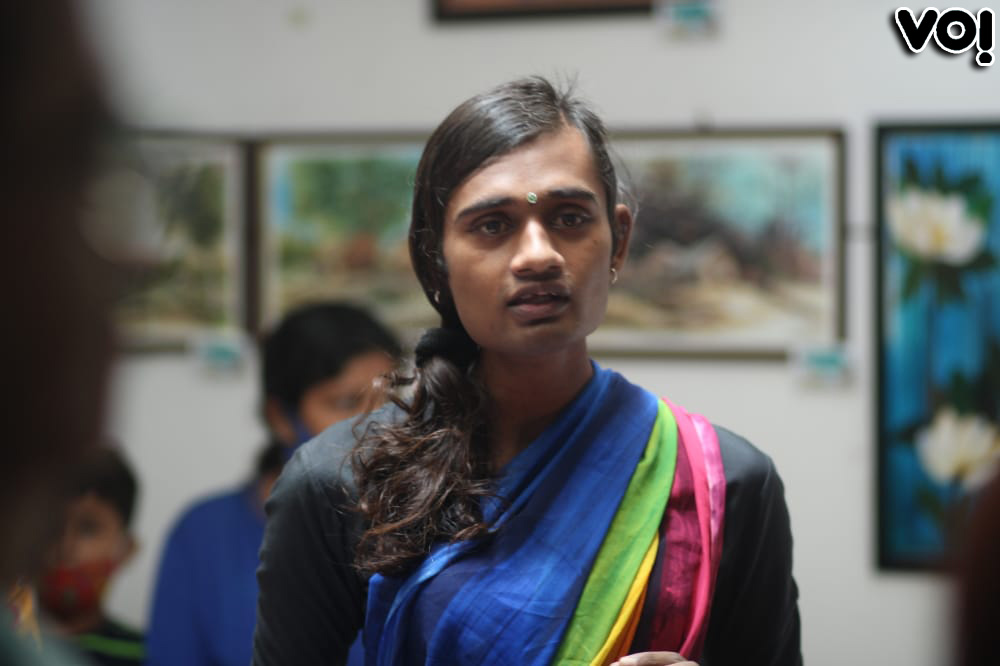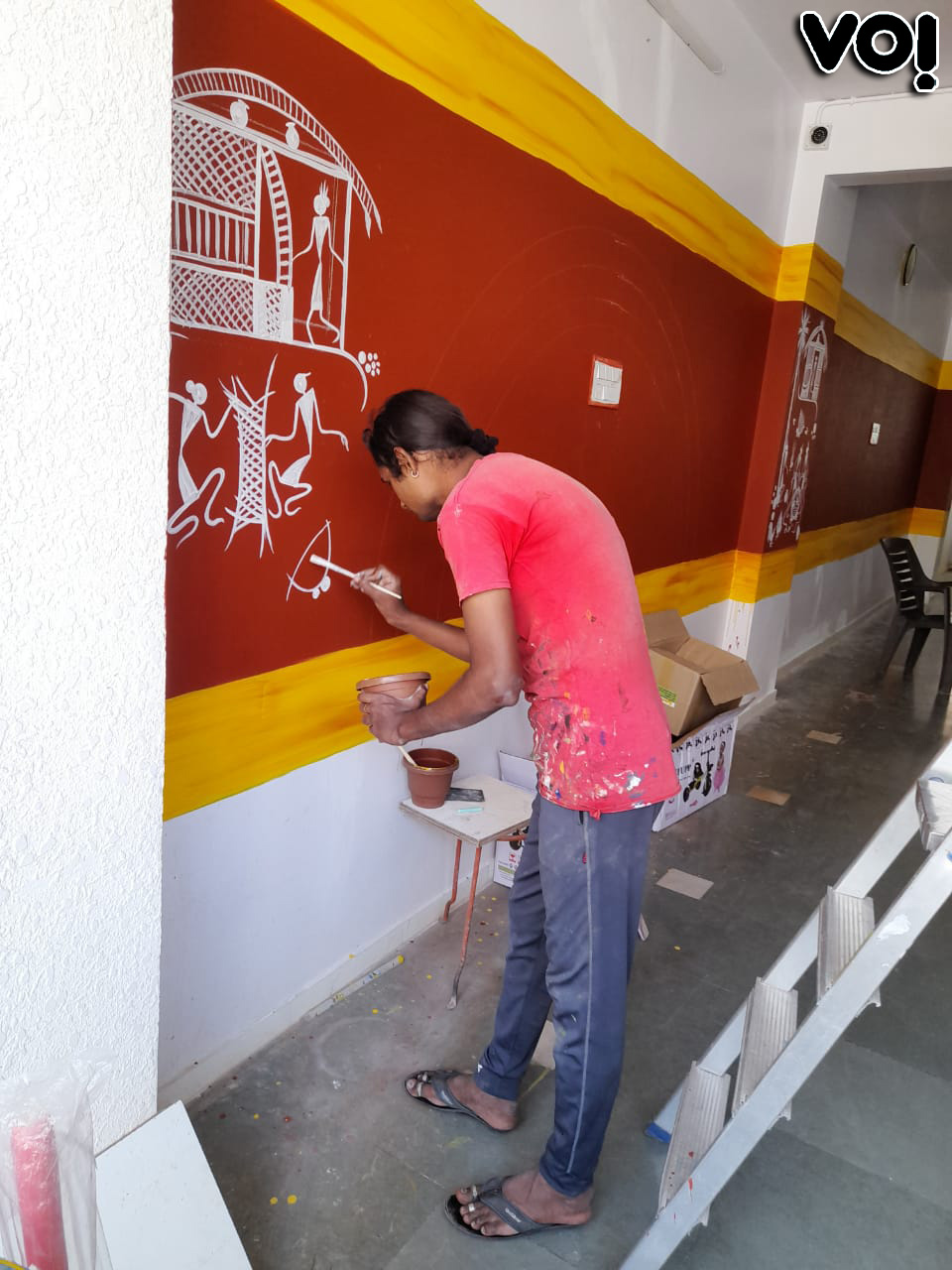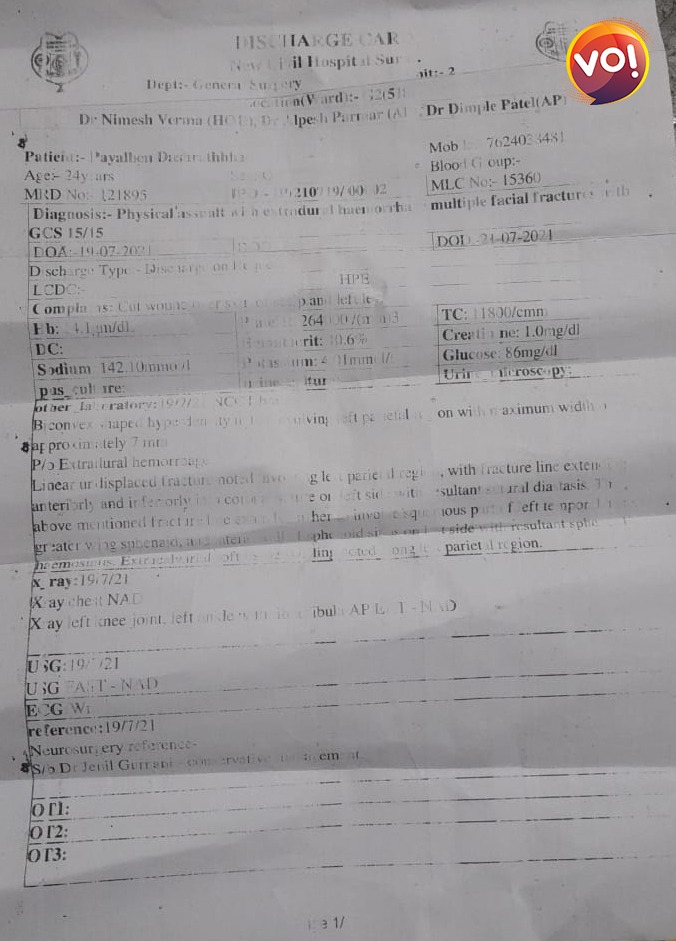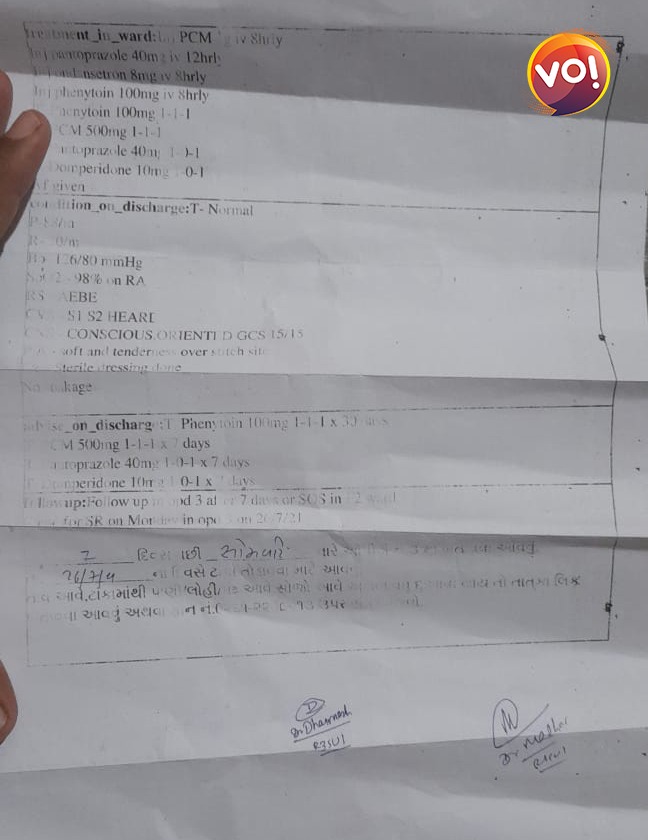Payal, a 24-year-old Adivasi transwoman from Rajkot, was gang-raped during the second wave of Covid and was later admitted to the New Civil Hospital at Surat on July 19 last year.
A self-taught Warli artist and Bharatanatyam dancer, Payal breaks down as she recounts her harrowing tale to Vibes of India. “I was financially struggling during the Covid-19 crisis. I was forced into sex work with a young man from Surat. But I was terrified to see five of them there and they raped me for hours”, she recalls.
More alarming, she is not the only one. According to a survey of nearly 5,000 transgender people by the National AIDS Control Organization, one fifth said they had experienced sexual violence.
“I was hospitalised for 5 days. After that, I approached the Varachha Surat Police station to register the complaint, but they refused to lodge my complaint”, said Payal.
She rues that Gujarat may be home to the temple of Goddess Bahucharaji, the deity of the third gender, but “yet when it comes to the welfare of transgenders like us, we are excluded.”
Pune-based LGBTQ activist Damini Sinha told VoI that India’s rape laws make it almost impossible for transgender people to get justice because they define perpetrators as men and victims as women.
“Sex working is not easy for a transwoman, the chances of getting abused and raped are very high. Specifically, if they are at their younger age and innocent. Studies reveal that about 96% of transgender individuals are denied jobs and are forced to take low paying, hazardous or undignified work for livelihood, like sex work and begging”, Damini explains.
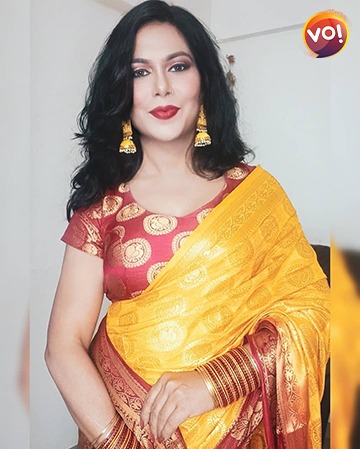
Amrapali Den, a research scholar on Challenges faced by Transgender in Gujarat told VoI that on February 18, 2019, the Gujarat government announced the formation of a Transgender Welfare Board chaired by the Social Justice and Empowerment Minister and hailed it as a progressive measure. Until November 2019, there was not a single transgender member on the Board.
The 16-member board comprises six transgender people, eight civil society representatives and two government officials. The Board has met only twice, first when it was constituted and the last meeting was in September last.
Notably, only Rs 50 lakh has been allocated to the welfare fund for 2021-22, while no real issues are being addressed.
“The Welfare Board is doing nothing and is almost dysfunctional. We sought proper implementation of education and pension schemes as well as suggested getting transgender ID cards and census done. The last meeting in September was just a formality and nobody had done anything about the issues we had raised. The community members had also submitted resumes of members who could be selected for the board. But we got no response”, Akruti Patel, a transgender activist and a member of the Board told VoI.
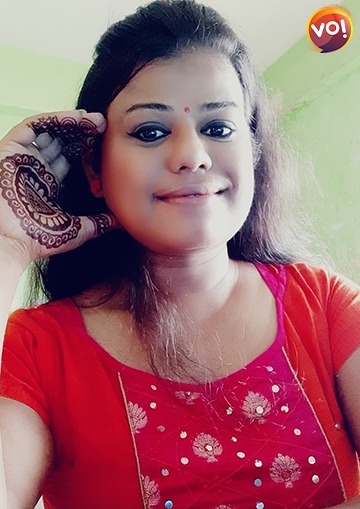
The annual Crime In India report released by the National Crime Records Bureau started collecting data on transgender persons only in 2016. However, the report may not truly represent the magnitude of crimes since it covers only the crimes reported to the police and other agencies.
Payal is a victim of a decade of discrimination and harassment, be it at home, school, at work or on the streets. She said her harassment began at home in Surendranagar in the Saurashtra region of Gujarat when she was around 13. Her name then was Mehul.
“When I was in Class 7, I began to feel that I wanted to dress up like a girl. I didn’t know the reason. Whenever my mother, father and sister were not at home, I wore my sister’s dress and kept looking at myself in the mirror. One day, I told my mother that I want to wear a saree and live like a girl. Then my parents beat me. I cried a lot. My parents even took me to many poojari, tantrik and a masjid to rid me of the ghost forcing me to evil thoughts. They thought I was a victim of black magic. My father sacrificed a hen too to cure me. My parents couldn’t understand that though I was physically a male, I wanted to be female. They won’t listen that I was a transgender.”
Such behaviour has been recorded by the National Human Rights Commission (NHRC). It states parents do not play a proactive role in the case of transgender children. Instead, the children suffer verbal and corporal abuse from parents, siblings and relatives.
The next battle is to get education, and then find work to live with some dignity. When Payal left home at 16, she had studied till Class 12. “Still during the Covid lockdown, I managed to study Diploma in Civil Engineering. I want to complete it, she says.
Many transgender persons in India drop out due to the hostile environment at educational institutions. The 2011 census showed a literacy rate of 56% among transgender people, considerably lower than the national average of 74%. A UNDP socio-economic assessment study of transwomen in Ahmedabad, Mumbai and Chennai revealed that only 14% of those surveyed had read up to 12th grade.
And it isn’t that there are no legal constitutional and policy provisions for them. She says under the Transgender Persons (Protection of Rights) 2019 Act, provisions have been made for their welfare in health, education, skill development, housing and others.
“I’m not a victim anymore, I’m a survivor. I know how the system works and help many like me. I am now at the forefront of this struggle,” says a determined Payal.
“But just look around Gujarat, we face challenges in accessing healthcare, education, housing, jobs and livelihood. The stigma, discrimination and violence in their daily lives force them to the margins. They stay away from public discourses, social movements, mainstream media that often overlook their struggles,” she says. A UNDP report also speaks of their exclusion.
Homelessness
Hema (name changed), a 30-year-old transwoman, lives in a room in a slum in Ahmedabad’s Vastarpur area where “even an animal won’t stay.
“I have to pay Rs. 2,000 as rent every month. Blistering summers or chilling winters, I have to live here. Though I pay rent on time, I can’t get a decent place. If our own family doesn’t accept us, who else will?” Hema tells VoI. She runs her life, washing dishes and cleaning in a restaurant, for which she gets two meals and Rs 70 a day – by concealing her transgender identity. “Many are forced to do sex work, it is the only existing non-transphobic workplace in Gujarat”, she added.
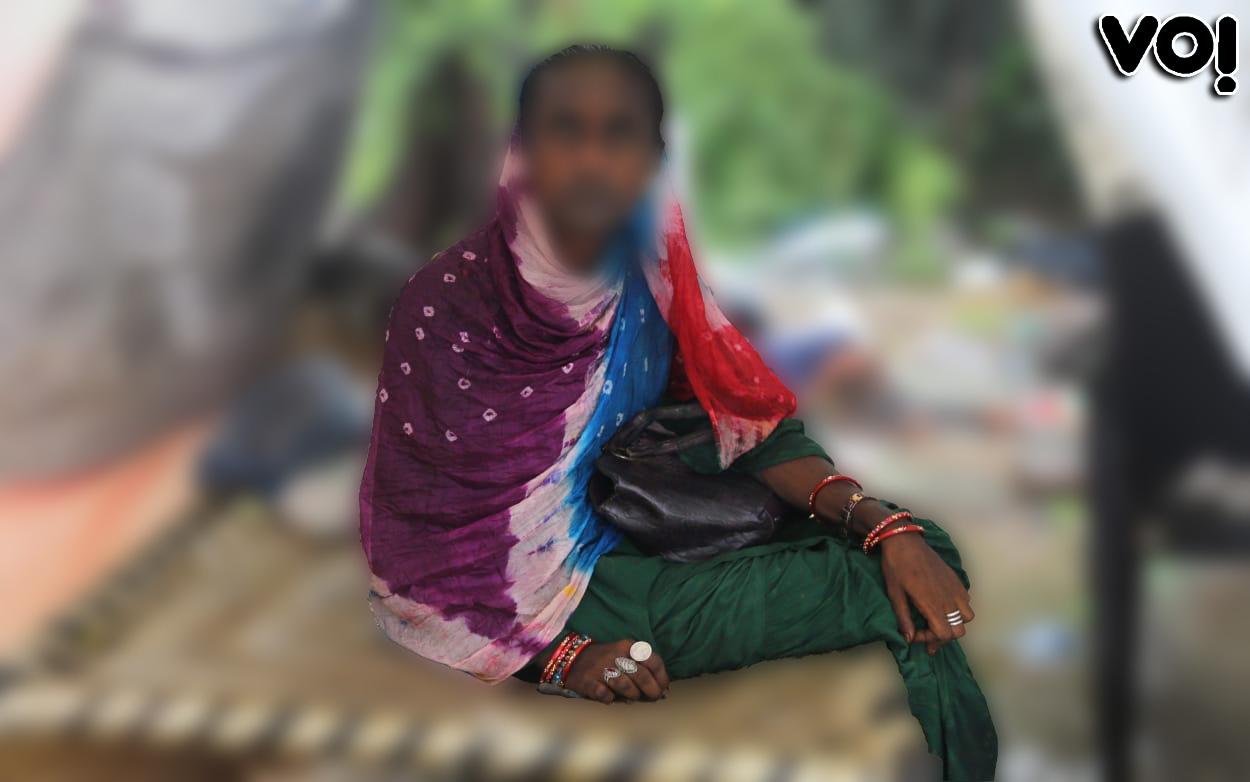
According to a study conducted by the NHRC in 2018, 96 per cent of transgenders are denied jobs and are forced to take low paying work.
Psychological Distress
“Why does everyone treat us with contempt?” Jisha (name changed) a 20 something-year-old transwoman asks. “Just because we are transgender, does it mean we don’t have ijjat [honour]?”
Akash, a queer affirmative psychologist told Vibes of India, “The trans community has been the worst hit by the pandemic in Gujarat. Many are developing suicidal thoughts because of constant abuse and lack of acceptance. Covid-19 crisis worsened the situation.”
Also, the trans community is uniquely vulnerable to Covid, with many being immuno-compromised due to several reasons, including sex-reassignment surgery, HIV and hormone intake.
Her story is similar to that of Payal and Hema. “I’m struggling, I may die soon”, Jisha says.
Trans individuals comprise 0.04% of the total Indian population, roughly 4.9 lakh, and only 30,000 of them are registered with the Election Commission. Denying equal opportunities for a sustainable livelihood to them also has its economic impacts. A 2016 World Bank report estimated India’s loss in GDP due to homophobia (and by extension, phobia toward the whole LGBTQIA+ community) up to US$32 billion, or 1.7% of the GDP.



